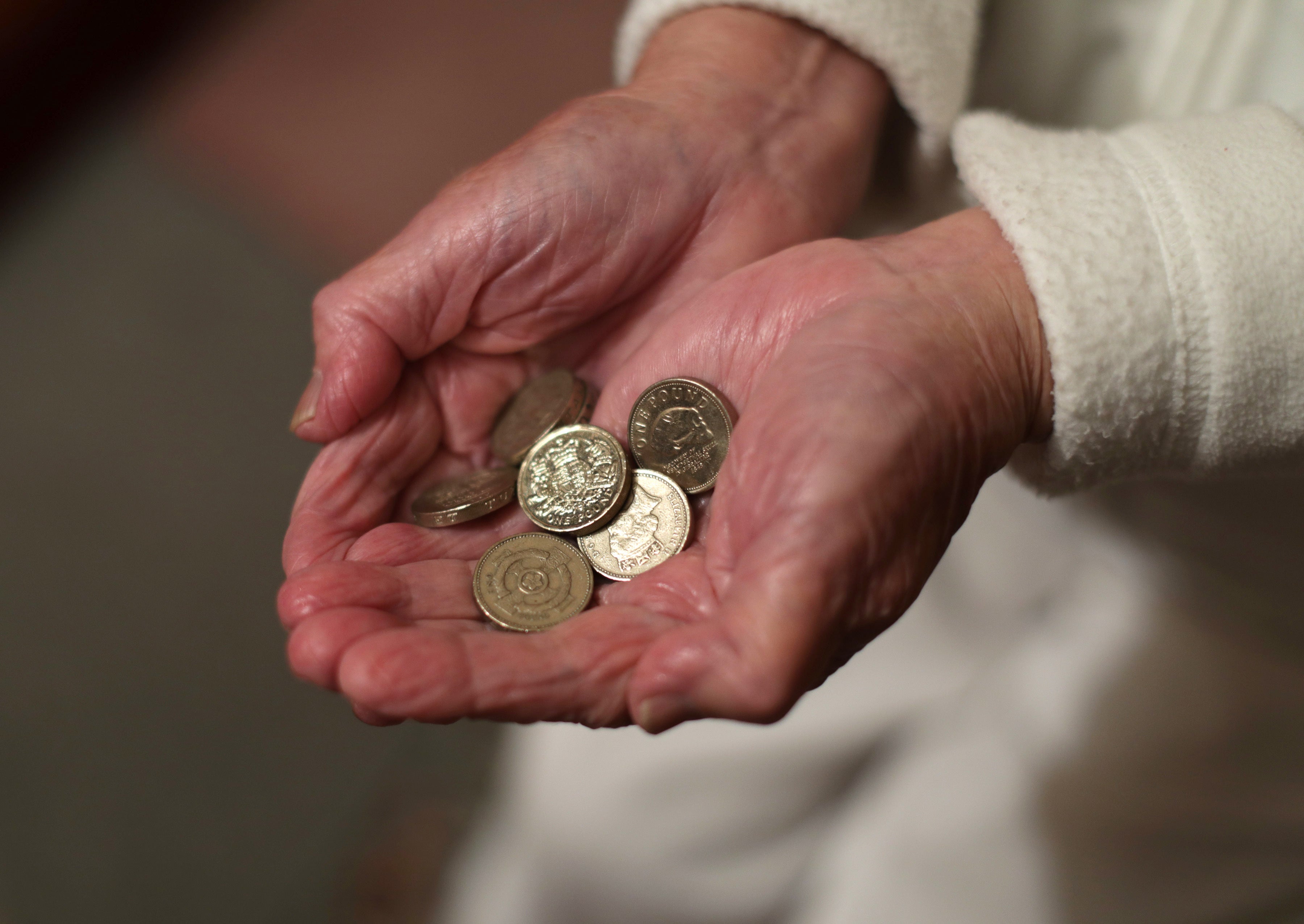Cancer sufferers find it hard to discuss financial impact of illness, says study
Research by Macmillan Cancer Support found that a quarter of people with cancer found it easier to discuss their diagnosis than their finances.

Your support helps us to tell the story
From reproductive rights to climate change to Big Tech, The Independent is on the ground when the story is developing. Whether it's investigating the financials of Elon Musk's pro-Trump PAC or producing our latest documentary, 'The A Word', which shines a light on the American women fighting for reproductive rights, we know how important it is to parse out the facts from the messaging.
At such a critical moment in US history, we need reporters on the ground. Your donation allows us to keep sending journalists to speak to both sides of the story.
The Independent is trusted by Americans across the entire political spectrum. And unlike many other quality news outlets, we choose not to lock Americans out of our reporting and analysis with paywalls. We believe quality journalism should be available to everyone, paid for by those who can afford it.
Your support makes all the difference.Nearly one in four (23%) people living with cancer have found it easier to talk about the illness itself than the impact on their finances.
Working age people were particularly likely to say talking about their diagnosis was easier than discussing the impact on their finances, with around a third (34%) of people aged under 60 who had been living with cancer agreeing.
The findings from more than 2,000 UK adults with a previous cancer diagnosis were released by Macmillan Cancer Support and Virgin Money as part of a three-year partnership to help people living with cancer receive appropriate financial support.
Macmillan previously released research suggesting more than four in five people living with cancer are hit by a “cancer price tag”.
At a time when people living with cancer should be focused on their health, we know that many are faced with extra and often unexpected costs
The charity said those who have found it easier to talk about their diagnosis than its impact on their finances were around twice as likely as average to have seen their household finances affected by Covid-19 in recent months.
Richard Manson, financial guidance specialist at Macmillan Cancer Support, said: “At a time when people living with cancer should be focused on their health, we know that many are faced with extra and often unexpected costs: from higher heating bills to keep warm when going through treatment, to paying for travel to get to and from appointments.
“We’re urging anyone concerned about their finances to get in touch so we can help, please don’t keep your worries to yourself.”
Fergus Murphy, group chief customer experience officer at Virgin Money, said: “It’s time to normalise the conversation around cancer and money. Many people living with cancer don’t feel comfortable talking to people around them, and they may even avoid talking to their bank through fear of being penalised.
“But there is support out there to help people take control and make good financial decisions.”
Macmillan highlighted the case of mother-of-three Jenny Powell from Hertfordshire who was diagnosed with breast cancer a month before Christmas 2020.
The 37-year-old said: “At a time when childcare responsibilities and the pandemic meant I was without employment, there was just no time to budget for the added expenses of cancer that came my way, including the wigs, clothing and other items that would help me retain some comfort and dignity through my illness.
“I really struggled to talk about my financial situation until I spoke to Macmillan.”
Here are five financial tips from Mr Manson at Macmillan for people living with cancer:
1. Making a budget can help you stay in control of your finances. It can also be useful if you need to contact your bank because they will want to know as much information as possible about your financial situation before seeing what support they can offer.
2. Check your insurance. Some policies will make a payment for a cancer diagnosis and a life insurance policy will often include terminal illness benefits, which may allow an early claim if your doctor expects a prognosis of less than 12 months. Even if you are unable to claim, some policies include additional benefits that can be accessed after a diagnosis, such as waiver of premium, which will pay the insurance premium if you cannot work because of illness or disability.
3. Contact your bank. While the support you may be offered can vary between banks depending on your personal situation and their policies, it is useful to find out what they can do for you.
4. Ensure you have an up-to-date will. Everyone should have a will regardless of their age or health. A valid will ensures that the right people inherit and that your loved ones do not suffer unnecessary hardship. A will can also be used to arrange affairs tax efficiently and to appoint people to sort out an estate following a death.
5. Review your pension. If you need to retire or leave work due to ill health, thinking about your pension options is useful. You may be able to access your pension because of your age or health circumstances. It is also important to make sure that you have filled out an expression of wish form. This tells the trustees of the scheme where any death benefits should be paid if the worst happens. Pension scheme rules vary and the decisions you make will affect your family’s financial future so it is important to get financial advice before making decisions.